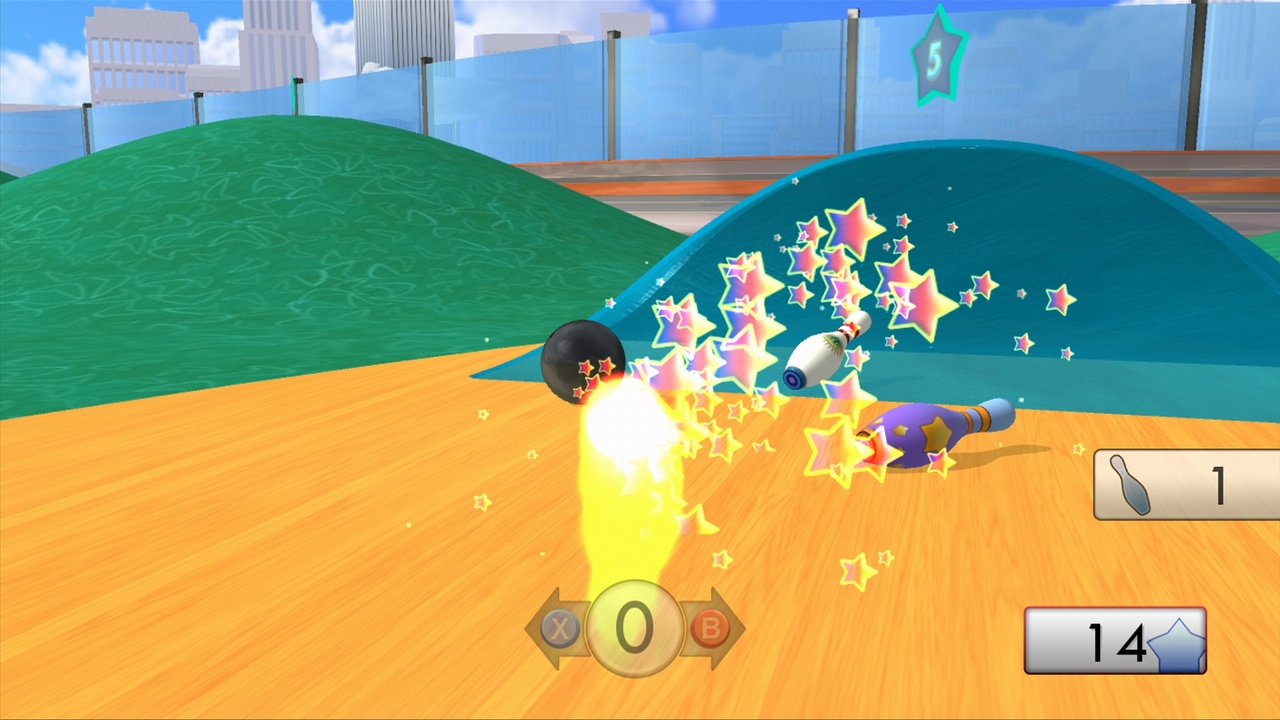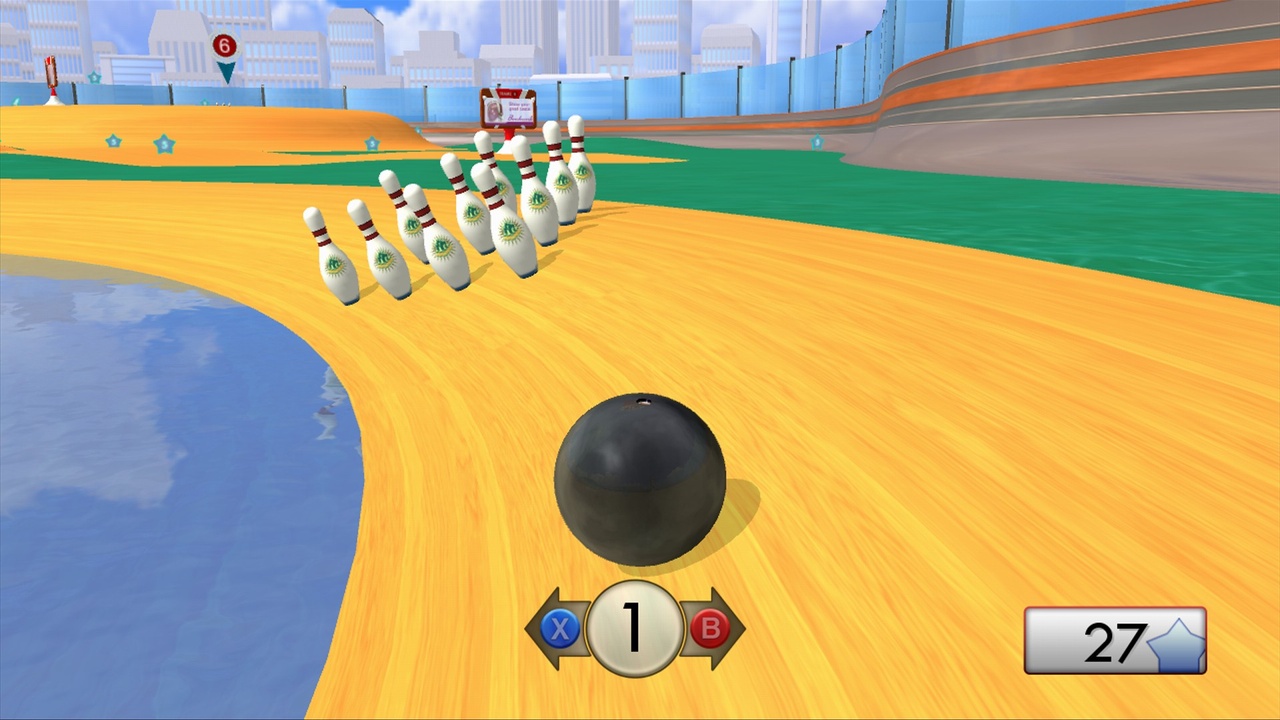Musician Henry Rollins once said that "one defines oneself by reinvention," by striving not to be like your parents or your friends, but by being original and different; to be yourself. That seems to be the intention of RocketBowl, a reinvention of the game of bowling that mixes minigolf-style courses with jet-propelled balls to create an experience wholly unlike bowling. RocketBowl achieves its goal of being different, but it’s not actually much fun to play.

In its search for individuality, RocketBowl takes the pins out of the alley and onto the valleys of the 10 hilly, curvy, or watery courses that you slowly unlock as you progress through the game's tournament-styled campaign. It's an interesting concept that mostly delivers on its intentions and certainly adds some welcome variety to the proceedings. Unlike traditional bowling, however, you don't just control the ball until the point of release, but rather, throughout its entire trip to the pins since you have the ability to turn it slightly left or right.
RocketBowl earns its namesake from the sole game mechanic that differentiates it from both bowling and minigolf: RocketBoost. This mechanic allows you to fire thrusters to push a ball left, right, or up into the air to drastically alter its path. It's a system that you can initially choose to ignore, but your reliance on it becomes paramount because you have to deal with the hilly, curvy paths of later courses, as well as their myriad obstacles, including large slopes and water traps. RocketBoost takes some getting used to, and you'll completely miss the pins you're trying to hit if you hit the thrusters a moment too early or too late.
RocketBoost propels RocketBowl towards innovation while at the same time causing it to crash and burn. For every time you hit a tough lane where you must battle the geometry of its design with nifty thruster maneuvering, there is a time where you see the very concept backfire. The biggest party crasher is the realization that there is little consequence for missing pins. You can just bounce off a nearby wall and hit the ones you missed the first time. This is especially apparent when you have a top-tier ball capable of firing its rockets more than 10 times, on top of being able to pick up more rockets littered around the environment. You can even veer onto other courses and knock down pins; there’s no penalty for such blatant cheating, either, just a reward for nailing a "wild shot." This absence of order only serves to marginalize the importance of any given shot. In some ways, it also does the same to the potential fun and challenge RocketBowl could consistently offer.
There are three modes in RocketBowl: a free-play Practice mode, a Challenge mode where you play a course champion with money on the line, and a Tournament mode where you play other AI-controlled opponents for a grand prize. To unlock a course in the Tournament mode, you must first reach a certain score on that course in the Challenge mode. Once you win the tournament for a course, you cash out and unlock the next of the game's 10 courses. This system works fine until you reach the later courses, which are much harder to rack up high scores on because their hilly, sloping lanes make it more difficult to string together strikes. Later levels are so nefariously designed that it is hard to reach the score requirements of earlier, easier levels, let alone the scores of 200-plus they obstinately demand.
There are a few power-ups scattered about the courses, including rockets, which give you more fuel for RocketBoost; stars, which can be converted to cash at the end of a game; and curves, which allow you to make sharper turns. Their effect on the game isn't massive, with the curve being the most beneficial. There are also time-extension power-ups that allow you to free roam with the ball longer on a course in case you want to pick up all available power-ups or stars, which is actually one of RocketBowl's achievements.

RocketBowl is a classic example of audio/visual mediocrity. The visuals are drab and dull, there are very few sound effects, and the annoying techno soundtrack is best substituted with a personal music collection to enjoy while you play. It also leaves a lot of be desired in the multiplayer department, in part because you're unlikely to find anyone else playing online. However, there is a local multiplayer option with suuport for up to four players. There's also an "alternative shot" option where you and your friends take turns firing away at any of the sets of pins on the course until a winner is declared.
It seems that the vast majority of the development time went into the core gameplay of RocketBowl, but the trimmings were left mostly unexplored. While there is some occasionally noteworthy level design, RocketBowl hits the gutter more often than it strikes. The initial interest sparked by the unique concept quickly fades into a mildly entertaining but ultimately unremarkable Xbox Live Arcade experiment unworthy of an actual purchase.